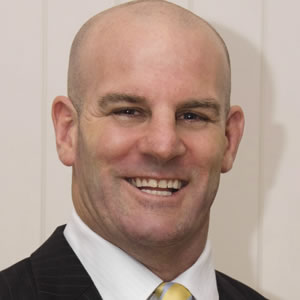Stakes are high in Essendon doping saga
The latest development in the Essendon Football Club supplements controversy carries significant implications for all concerned, Tim Fuller writes.

Today the Court of Arbitration for Sport (CAS) has convened in Sydney for the World Anti-Doping Agency (WADA) appeal of the Australian Football League (AFL) ruling in March involving 34 current or former Essendon players.
To continue reading the rest of this article, please log in.
Create free account to get unlimited news articles and more!
The AFL Tribunal was not “comfortably satisfied” that any player had breached 11.2 of the AFL Anti-Doping Code. The Tribunal was required to consider whether Essendon players had allegedly used a prohibited substance (namely, Thymosin Beta-4). Readers may recall that Essendon players were allegedly injected with Thymosin Beta-4 by sports scientist Stephen Dank.
In contrast, Mr Dank was later handed a lifetime ban by the AFL Tribunal after being found guilty of 10 breaches of the AFL Anti-Doping Code (Mr Dank is appealing that decision). Mr Dank was cleared of a further 24 charges, which included some of the most serious violations.
Following the decision, WADA as the world governing authority for anti-doping policy exercised their right to appeal the AFL Tribunal decision. The hearing started today and is expected to last between five to seven days.
In the CAS jurisdiction, this is equivalent to a cricket test – it is the long form of the game in comparison to the majority of CAS hearings that are swift and expedient. The hearing will be a de novo hearing – providing the CAS with the flexibility to hear new evidence, review previous evidence and to have various options at its disposal with the decision making (including referring the matter back down to the AFL for a second go!).
This is where the appeal gets a little interesting. In essence, WADA will only succeed if new evidence involving the Essendon players is produced. This may prove to be slightly problematic. Neither the World Anti-Doping Code (WADC) nor the CAS Code confers an express power on WADA for witnesses to appear at the appeal by way of subpoena. However, this cannot be ruled entirely out and this aspect may form a crucial part of WADA’s appeal process.
WADA will be desperate to have key witnesses appear. Among others, the prime candidates are the people that sourced supplements from China, which may have included Thymosin Beta 4, and the compounding pharmacist that mixed such supplements that were ultimately provided to Essendon as a club – that allegedly were injected into the Essendon players. Remember – WADA is required to prove to the “comfortable satisfaction” that this is what occurred (the standard of proof is generally regarded as being between the civil and criminal standards of proof in this country).
It is hard to see how WADA is going to prevail in this appeal unless key witnesses appear and further evidence is attained. One thing is certain – this hearing is the end of the road for the Essendon drugs scandal. The CAS operates as an independent arbitrator in sports-related disputes and for both parties to proceed to the CAS there must be agreement that any decision of the CAS is final and binding. Whatever the outcome, the respective parties must abide by the umpire’s decision.
Undoubtedly, this appeal carries significant implications for all concerned, but the author suggests more so for the anti-doping authorities WADA and Australian Sports Anti-Doping Authority (ASADA).
Firstly, it is indisputable that the role that ASADA played in this episode was not one of their finest digs. The credibility of ASADA and the role of government in framing and supporting anti-doping policy in Australia have been seriously called into question. Undoubtedly, the anti-doping policy framework in Australia is in need of a major overhaul following the “blackest day in Australian sport” announcement. Secondly, the recent revelation of the state-sponsored doping scheme in Russia has shocked the sporting world (not easy to do after Lance Armstrong).
With doping in sport on the rise and the infiltration of organised crime into sport, the stakes are very high for WADA as it attempts to level the playing field and preserve the integrity of sport.
Tim Fuller is a sports lawyer with Mills Oakley in Brisbane and a former NRL player.






